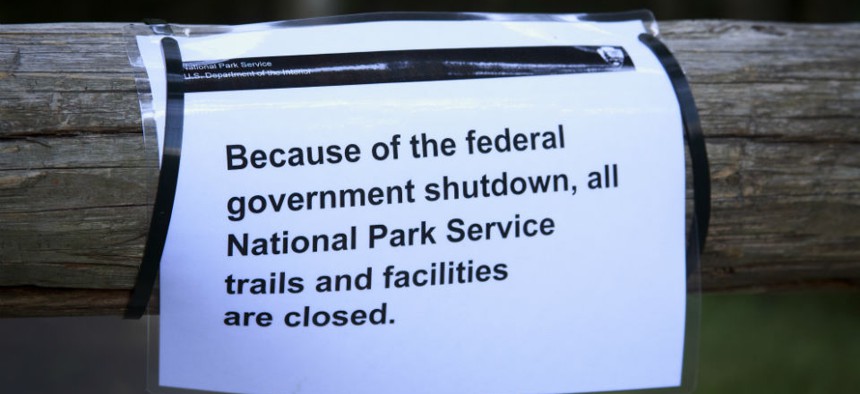
Flickr user Mount Rainier National Park
How to End Government Shutdown Threats Forever
Florida lawmaker has a plan to ensure agency funding never expires.
Taken in its totality, the federal government is the largest employer in the nation.
According to one lawmaker, it is sometimes also “the worst boss in the world.”
Rep. Alan Grayson, D-Fla., has a plan to change that, however. The continual, ever-looming threat of a government shutdown stagnates the economy and impairs federal employees’ ability to do their jobs, Grayson told Government Executive, and the country should do away with the possibility entirely.
Grayson’s plan is to “shut down the shutdowns,” by triggering an automatic continuing resolution at the previously agreed upon spending levels when funding is set to run dry. Funding would then default to continuing the status quo, rather than the shuttering of federal agencies.
Even when agencies are not forced to shut down, Grayson said, the threat of one forces them to waste resources on contingency planning.
“Undertaking that planning is useless,” Grayson said, adding the Homeland Security Department spent millions of dollars in the last several weeks as lawmakers flirted with allowing the agency’s funding to expire.
According to financial services company Standard & Poor’s, the 16-day government shutdown in 2013 took $24 billion out of the economy. Grayson said the real impact is likely even greater, as many shutdown consequences are hard to measure. The shuttering of the National Institutes of Health, for example, would not just put scientists temporarily out of job, but could set back finding a cure for cancer, he said.
“We create government programs to serve the common good,” Grayson said. “Whenever any part of government shuts down we lose those benefits.”
This damages not just the end users of government services, but also those who work to provide them.
“When shutdowns loom from time to time, federal government starts to resemble the worst boss in the world,” the lawmaker added. “It makes it difficult for government employees to function when they’re treated so disrespectfully.”
Grayson theorized some “cynical” lawmakers may want to preserve the threat of a shutdown for political leverage, but historically their usage has been more of a “suicide bomb.” When shutdown threats or actual appropriations lapses reach their inevitable conclusions -- the funding of government agencies -- no one wins, and those holding out for an alternative cause walk away empty handed, he said.
The proposal could win bipartisan backing; in the last Congress, current senator but then-Rep. James Lankford, R-Okla., introduced a similar measure in the House with more than a dozen Republican cosponsors. Sen. Rob Portman, R-Ohio, did the same in the Senate, though neither measure gained any traction.
Federal employee unions have previously expressed discontent with this type of legislation, warning it could enable lawmakers to intentionally underfund agencies.
(Image via Flickr user Mount Rainier National Park)







